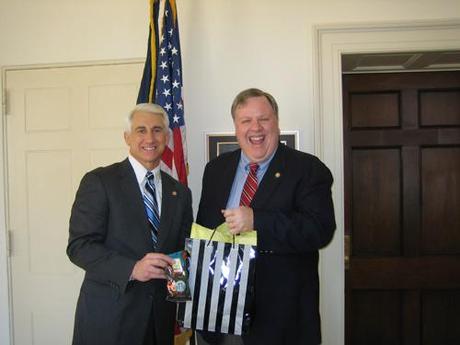
This is my first political article of the year, and also a new Realizing Resonance monthly tradition: This Month in Political Philosophy. Given that in January the theme is Philosophy of Time, I decided a fun topic would be legislative term limits, since it deals with a temporal aspect of public service. I believe there is a strong case to be made against institutionalized term limits. I have 4 primary arguments:
1) Term limits are undemocratic because they limit the choices available to voters discriminatorily. This may not seem discriminatory at first glance, since term limits would seem to be the ultimate equalizer in a certain sense. After all, everyone would be subject to the same limits and this would entail a less diverse office holder in terms of the duration of their service. However, term limits discriminate against those voters who demand candidates with experience in the relevant post, and who want to be able consider this experience as a criterion for their voting choice.
2) Terms themselves, without limits, provide an adequate check on power through the voting process. It is up to the majority of the people to choose their representatives in government and the fact that incumbents win 95% of the time, along with much relevant polling data, suggests that constituents typically like their local representative, but do not like the whole body of representatives taken together. The desire for term limits when regarded in this light appears to be more about a frustration with the votes one does not have the ability to affect rather than one’s own vote. If one desires term limits for one’s own region due to a frustration with current and past representatives who one believes served too long, this is derived from the frustration of being in the minority of voters and the lack of ability to determine the relevant voting outcomes. Either way, the position of frustration against those duly elected to office in a democratic vote is not a sufficient criterion to outweigh the interests of local and majority voters in weighing the unique and relevant experience garnered from previous time served in office as a selection criterion.
3) Experience with term limits has led to negative unforeseen consequences. Consider that the State Legislatures are held to be laboratories of democracy. That is, in many cases we can observe how a new institution or law at the State level plays out and then better understand the implications if other States or if the Federal Government adopts the new provision. Experience with term limits at the State level has demonstrated problematic consequences. The National Conference of State Legislatures has reported that 83% of legislators polled are opposed to term limits. Many reasons for opposing term limits are cited by those who have experienced and observed them. Knowledge about process and history takes a hit every time brand new candidates must be swept into office. Fights over leadership start early and develop into continual battles over rank that distract from official business. Power in the executive branch of government is strengthened by the relative decline in the power of the legislative branch, as inexperience becomes a fundamental aspect of their position where it was not before. (Dye, MacManus 63-64)
4) If one desires term limits because they believe that many successive terms are a corrupting force and that this corruption is evident to them but not others, thus long terms themselves frustrate the democratic process, then one must consider fully the implications of such as move. Term limits actually strengthen the power of lobbyists and legislative staff, as they become relied upon much more by new office holders to provide relevant subject matter expertise. This diverts the power of governance to those who are unelected more than it would otherwise. The potential for corruption is thus greater with term limits than without.
If you still think term limits are a good idea please leave a comment below and start a good civil debate. There may be many points I have not considered in my analysis.
Jared Roy Endicott

